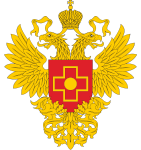
ORIGINAL RESEARCH
The role of fast running in prevention of negative effects of prolonged exposure to weightlessness
State Scientific Center of Russian Federation — Institute of Biomedical Problems RAS, Moscow, Russia
Correspondence should be addressed: Elena V. Fomina
Khoroshevskoe shosse, 76A, Moscow, 123007, Russia; ur.xednay@nimof-nimof
Funding: the work was financially supported by the Russian Academy of Sciences (63.1) and Roscosmos State Corporation.
Acknowledgements: we express our gratitude to the cosmonauts for participating in the experiment (Yuri Gagarin Cosmonaut Training Center); Lysova N.Yu, senior researcher, Candidate of Biological Sciences, (Institute of Biomedical Problems); Rezvanova S.V. (Center for Innovative Sports Technology and National Teams Training) for participation in the experiment and data collection; Beda O.O. for supporting the experiment's sessions in the MCC; Smirnov Yu.I. for participation in the preparation of documentation; Kukoba T.B, Babich D.R., Romanov P.V. for development of the individual strength training protocols and strength training supervision during the space flight.
Author contribution: Fomina EV — organization and support of the Profilactika-2 experiment, conducting sessions of the experiment, article authoring; Senatorova NA — conducting sessions of the experiment, support of the experiment, statistical processing of the results, literary review and arrangement of the article; Bakhtereva VD — data processing, article authoring; Yarmanova EN — engineering support of countermeasures, development of the BD-2 treadmill in collaboration with I.B. Kozlovskaya; Kozlovskaya IB — selection/formulation of goals, objectives and methods of the experiment.
Compliance with ethical standards: the Profilactika-2 experiment was approved by the Ethics Committee of the Institute of Biomedical Problems (Minutes #368 of August 22, 2014). All participants signed a voluntary informed consent form.
The prospects of deep space exploration necessitate modification of the principles and methods underlying the system designed to prevent negative impact of weightlessness on the human body. This work aimed to determine how fast running, as part of locomotor training during a space flight (SF), helps maintain physical ability of a person. The study involved 10 cosmonauts; their physical performance was assessed at all stages of the SF with the help of the Individual Strategies Test (IST). The parameters registered when the participants were doing the IST included heart rate (HR), gas exchange, capillary blood lactate concentration. The cosmonauts were divided into two groups based on the differences in the mean distance covered while fast running on a treadmill (single session). Group A (n = 4) run 949 m/day on average, group B (n = 6) — 2669 m/day. After SF, HR in group A increased at speeds from 5 to 8 km/h (p < 0.05), pulmonary ventilation indicators grew at speeds from 8 to 15 km/h (p < 0.05), and the capillary blood lactate concentration measured during the post-test recovery period increased by 37% (p = 0.03). Moreover, after SF, the pulse sum recorded under load and during recovery was 14% (p = 0.02) and 15% (p = 0.03) in group A, respectively, while in group B we registered no differences. Thus, our hypothesis that fast running triggers sensory reactions simulatingEarth conditions for the body, which consequently activates physiological mechanisms counteracting the negative effects of weightlessness, has been confirmed in a space experiment.
Keywords: space flight, physical performance, locomotor training, physical activity test, ergospirometry